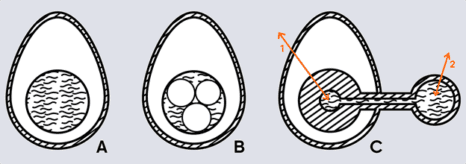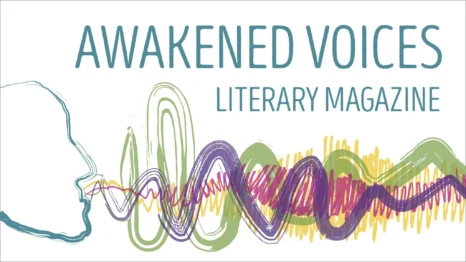Why I Didn’t Report
- Callen Harty, Nightingale
Harty asks the same question again and again, with a new answer each time. Why I didn’t report? “There are too many reasons.” Through writing that is open, gentle, and direct, Harty examines years of his own silence after experiencing childhood sexual abuse. Yet, by breaking his silence now, he invites other survivors to come to the same realizations of healing, to know that it was never their fault and that they are not alone.
Why I Didn’t Report
by Callen Harty
Why I didn’t report?
Blame. I did report. As a little boy I told my mother and her response was, “You shouldn’t let him do that to you.” She didn’t know any better and neither did I. So when it happened again I didn’t tell her because I had let him do that to me. And the next time. And the next. The next. Next. I didn’t report because I didn’t know I could or should or that there was anyone I could tell who would help me.
Why I didn’t report?
Fear. Because I was told that I had better not ever tell anyone. I was threatened. Years later, when I was writing a play about surviving my childhood sex abuse I had irrational (or maybe they were not so irrational) fears that if he found out what I was working on he would kill me so that no one would ever know.
Why I didn’t report?
Shame. I told a friend in high school, but then immediately told her that she could never tell anyone else. I was ashamed, embarrassed, afraid. What would people think of me?
Why I didn’t report?
Processing. It took me years, as it does many survivors, to sort through and process what had happened to me as a child. While I told a few close friends over the years, it took me decades to be able to talk about it in any kind of detail. It took time, exploration, courage to be able to face the horror of it all.Why I didn’t report?Time. Even if I wanted to have him put away, by the time I had enough courage to deal with it, the statute of limitations had long since expired. Plus, our justice system is such that it would have been clear that even without a statute of limitations the burden of proof would be too great. There was no physical evidence, no corroboration-nothing but my memories, some of which are still vivid to this day, but with many of the specific details lost. Who remembers the date or day of the week every time something like this happens? I can say with certainty exactly where some of the incidents took place, but not all of them. Memory is imperfect and so is the justice system.Why I didn’t report?Gender. As a boy and young man I was supposed to be strong. I was supposed to be able to protect myself. Admitting it was like admitting weakness.Why I didn’t report?There are too many reasons. What if I wasn’t believed? What if he found out I told and hurt me? What if everyone said the same thing as him, that it was my fault and that I wanted it? It was far easier to drown myself in alcohol and drugs, think of killing myself, ignore the reality as much as possible, and blithely go on living, hoping the pain and the burden of it all would go away.Why am I speaking now?Because it is never too late. Because other survivors need to know they are not alone. Because there is at least justice in naming what happened. Because I know now that it was not me-that it was on him. Because I am no longer afraid. Because I love myself enough to claim my truth.
*
Callen Harty is a writer and activist. He has written five books, including a memoir about surviving child sex abuse, “Empty Playground: A Survivor’s Story.”


